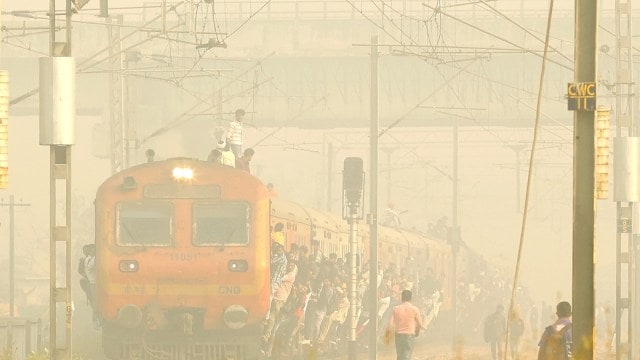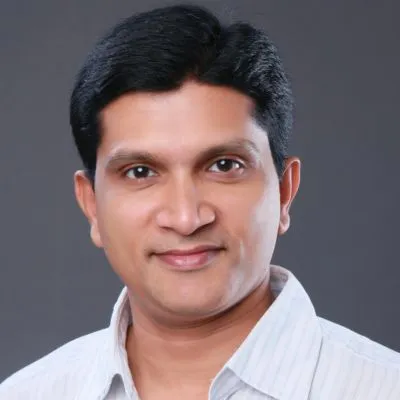
“We direct the state government of Punjab and for that matter, all states adjacent to Delhi — Haryana, Uttar Pradesh, Rajasthan and some parts of Delhi – to ensure that crop burning is stopped forthwith and the local SHO is made responsible for it under the overall supervision of the Chief Secretary for the time being,” the bench said.
Story continues below this ad
It said it considered “appropriate that for immediate action, the Cabinet Secretary calls for a meeting tomorrow itself whether physically or by Zoom and all stakeholders will connect to ensure that we have a better picture and some redemption by Friday”.
“For the time being, this has to be stopped. Then we will see what can be done in the long term,” it said.
The bench asked the Delhi government why the smog tower installed in the Capital was not working. It was told that some disciplinary action is being taken against an official. Calling the response “ludicrous”, the bench directed that the tower be made functional.
“This is ludicrous. We want the tower to be working. As to which officer what they do is their business,” it said.
Story continues below this ad
Noting that the cultivation of a particular breed of paddy at this time of the year, as a third crop between the rabi and kharif seasons, was at the root of the problem, the bench also called for a shift to other crops as a long-term measure.
“Punjab is seeing a scenario where the growth of paddy is causing the water table to decline and that too drastically. A number of wells are stated to have gone beyond redemption. Thus, the very cultivation of the paddy, which is not consumed in Punjab, is a problem. This is his (Punjab Advocate General’s) suggestion, and we do believe currently so, that paddy cultivation must be phased out to be substituted with other crops and the Central government should explore the aspect of giving minimum support price for alternative crops rather than going for paddy,” it said.
Appearing for the Punjab government, Advocate General Gurminder Singh Kharbanda flagged the problems that the state was facing due to the MSP for paddy.
“MSP is happening in such a strange way. Rice is grown in UP, it is smuggled into Punjab to be sold in the PDS at a higher price… MSP is encouraging smuggling of grains into Punjab and causing loss to the state exchequer,” he said.
Story continues below this ad
The AG said, “Haryana is not so much at fault. Haryana is growing basmati. It is also rice, but its stubble can be easily ploughed back.” He said, “Therefore, the Centre has to take a policy decision on this that you have to get in new crops. You have to make renewable energy a norm, not an exception.”
Taking note, the bench, in its order, said that according to the AG, “the misuse is also arising from the MSP for paddy because paddy grown in adjacent states is then illegally brought into Punjab to claim MSP and sold under the MSP policy. The particular kind of paddy which is grown in Punjab, of which the stubble is a by-product, coupled with the season when it grows and the period required for cultivation, which causes the problem which may not be true of basmati grown in other states”.
Saying that “a serious look is required”, the bench added, “whether this kind of paddy should at all be grown and certainly, we believe, not in Punjab, because this problem is persistent with the particular paddy which is grown and the time period when it is grown. In fact, say 15 years back, this problem used to not exist because this particular cropping used to not take place.”
The bench also referred to the AG’s contention about Delhi’s “locational issue” due to which “weather conditions” in and around Delhi affects the pollution level” and said “we cannot be dependent on the weather conditions alone to hope for some redemption. We want all the stakeholders to act promptly in respect to the aforesaid aspects.”
Story continues below this ad
It said “residents of Delhi have been struggling with health issues because they don’t seem to find a solution year after year to the aggravated problem of pollution at this time of the year. That part of the year passes, and it goes on to the next year. This has been the ongoing process for five years. It is time that something is done”.
Agreeing that vehicular pollution also contributes to the pollution levels, the bench also called into question the odd-even scheme of the Delhi government, calling it “optics”.
Addressing the Delhi government counsel, Justice Kaul said: “You have said that you have imposed this alternative cars, even-odd… Did it succeed earlier ever? … These are all optics. This is the problem.” The court asked the state government to “report back to us… on this aspect also”.
The bench asked the counsel appearing for the states to take instructions on what had been done to comply with the proposal to introduce colour-coded stickers for diesel, petrol and CNG vehicles in a bid to control vehicular pollution.
Story continues below this ad
Pointing out that a large number of app-based taxis, registered in other States, were plying in Delhi and contributing to pollution, the bench sought to know if there is any way of monitoring that only taxis registered in Delhi are allowed to operate in the Capital as an additional measure to control pollution. It clarified that this is only a temporary measure.
Justice Kaul said he “happened to travel through Punjab over the weekend and (saw) widespread fires, both sides of the road. Crop burning was taking place”.
The Punjab AG, however, sought to point out that there was a 40% reduction in farm fires in the State compared to the previous year.
But Justice Kaul expressed doubts and told the counsel that it cannot always be a political battle.
Story continues below this ad
“Where? Where is it occurring? “Both sides, fires are taking place. The only difference is… suddenly you have sought to shift the blame on other States… It’s obvious why this shifting …But this can’t be a political battle all the time… shifting from one State depending on who is ruling one State or the other. I am sorry, this is a complete murder of the health of people. There is no other phrase I have. You see the number of young children in Delhi who are going through health issues… Everybody can’t keep throwing up their hands… Why can’t you stop these fires?”
At the suggestion of the court-appointed amicus curiae, Senior Advocate Aparajita Singh, the court directed “the Delhi State Government to monitor and ensure that the Municipal Solid Waste is not burnt in the city in the open as happens during this season”.
It also asked the Delhi Pollution Control Committee “to immediately release data” from the study on “Real Time Source Apportionment and Forecasting for Advance Air Pollution Management in Delhi”, commissioned by it, and asked the committee chairperson to remain personally present in the court on November 10 when it will hear the matter next.









